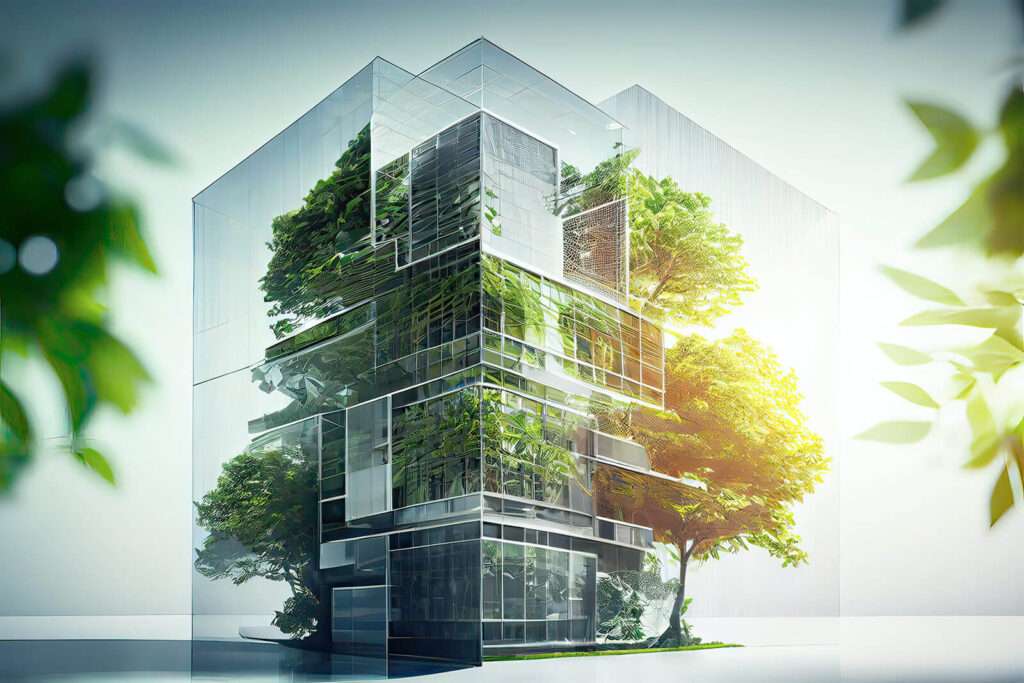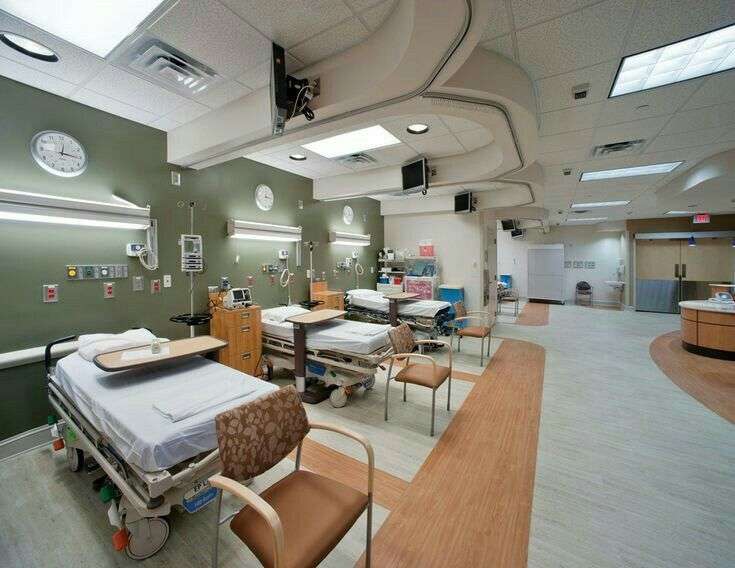
Launching A Hospital Abroad: Guide For Indian Doctors
April 8, 2024
“Telemedicine: Breaking Barriers for Better Healthcare”
April 17, 2024MODERN HOSPITAL ARCHITECTURE DESIGN: Contact- +91-9967512705 For Hospital Building and Healthcare Designing Services in PAN India.
The healthcare industry, while dedicated to healing and well-being, also generates a significant environmental footprint. From energy consumption and waste generation to water usage and chemical use, the modern hospital has a responsibility to minimize its impact on the planet. Thankfully, a growing movement towards sustainable healthcare is taking root, with modern hospitals implementing innovative solutions to become more eco-friendly.
The Environmental Cost of Healthcare
Let’s delve deeper into the environmental challenges posed by traditional healthcare practices:
- Energy Consumption: Firstly, Modern Hospitals are notorious for high energy needs, often relying on fossil fuels to power lighting, heating, cooling, and medical equipment. This reliance contributes to greenhouse gas emissions and air pollution.
- Waste Generation: Healthcare facilities generate a staggering amount of waste, for instance, medical waste (contaminated materials), pharmaceutical waste (expired medications), and general waste (paper, and plastic). Improper disposal of this waste can harm ecosystems and pollute water sources.
- Water Usage: Furthermore, Hospitals utilize a significant amount of water for various purposes, including sterilization, sanitation, laundry, and patient care. Inefficient water use can strain local water resources and contribute to droughts.
- Chemical Use: Disinfectants, cleaning products, and certain medications often contain harmful chemicals that can contaminate waterways and disrupt ecosystems if not disposed of properly.
The Rise of Sustainable Healthcare Practices

Fortunately, hospitals across the globe are recognizing the environmental cost of their operations and implementing sustainable practices to reduce their impact. Here are some key areas of focus:
- Energy Efficiency: Firstly, Modern hospitals are embracing energy-saving technologies like LED lighting, energy-efficient appliances, and building automation systems. Investing in renewable energy sources like solar panels further reduces reliance on fossil fuels.
- Waste Reduction and Management: Secondly, Hospitals are implementing waste segregation programs to divert recyclable materials from landfills. Additionally, efforts are underway to minimize single-use plastics and opt for reusable alternatives. Advanced technologies can even sterilize medical equipment for reuse, reducing disposable waste.
- Water Conservation: Thirdly, Hospitals are installing low-flow fixtures, implementing rainwater harvesting systems, and employing water-saving practices in laundry and patient care. These efforts can significantly reduce water usage without compromising hygiene standards.
- Green Building Design: Moreover, Sustainable architecture prioritizes natural light and ventilation, minimizing reliance on artificial lighting and cooling systems. Hospitals are opting for eco-friendly construction materials and incorporating green spaces within their facilities.
- Sustainable Procurement: Hospitals are increasingly sourcing medical supplies, cleaning products, and equipment with environmental considerations in mind. This includes prioritizing products made from recycled materials, minimizing packaging, and choosing products with lower environmental impact during manufacturing and disposal.
Benefits of Sustainable Healthcare
The transition to sustainable healthcare practices offers numerous benefits beyond environmental protection. Here’s how going green makes good business sense for hospitals:
- Reduced Operational Costs: Energy and water conservation, waste reduction, and responsible procurement can lead to significant cost savings for hospitals.
- Enhanced Public Image: Hospitals can attract patients and staff who value sustainability by showcasing their commitment to environmental responsibility.
- Improved Staff Morale: Working in a sustainable and eco-friendly environment can boost employee morale and satisfaction.
- Compliance with Regulations: As environmental regulations become stricter, hospitals that prioritize sustainability will be better positioned to comply.
Hospertz: Your Partner in Building a Sustainable Hospital
At Hospertz, we understand the importance of sustainable healthcare practices. We work closely with hospitals to integrate green solutions into their planning and development process. Whether it’s designing energy-efficient buildings, implementing waste management strategies, or sourcing sustainable materials, Hospertz provides the expertise and guidance to help hospitals navigate the path toward a greener future.
Join the Movement Towards Sustainable Healthcare
The healthcare industry has a vital role to play in ensuring a healthy planet for future generations. By embracing sustainable practices, hospitals can minimize their environmental footprint while delivering high-quality patient care. Let’s work together to build a healthcare system that prioritizes both human and environmental well-being.
Ready to learn more about how Hospertz can help your hospital go green? Contact us today for a free consultation!





1 Comment
Very neat articleReally looking forward to read more Cool